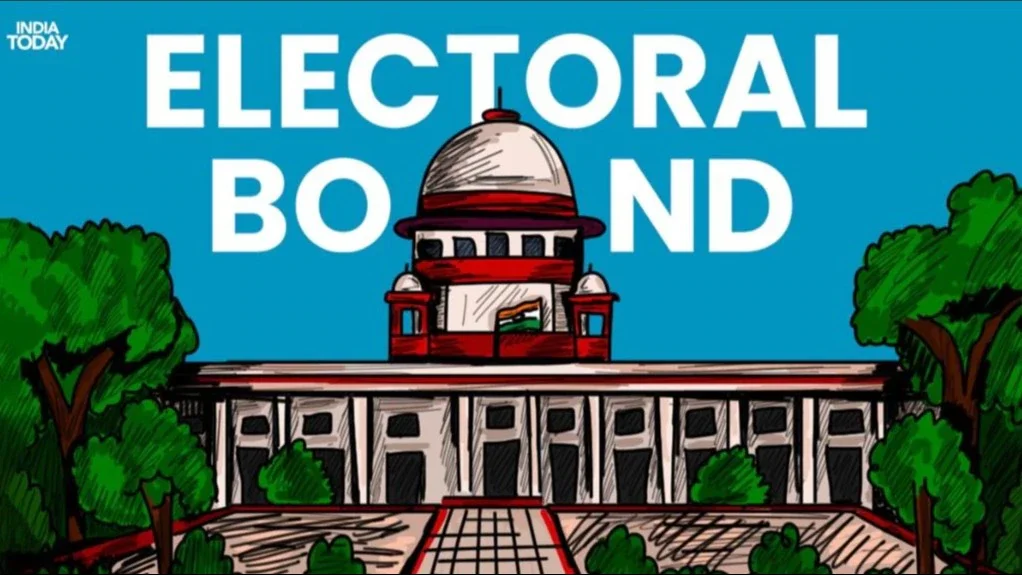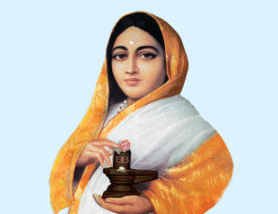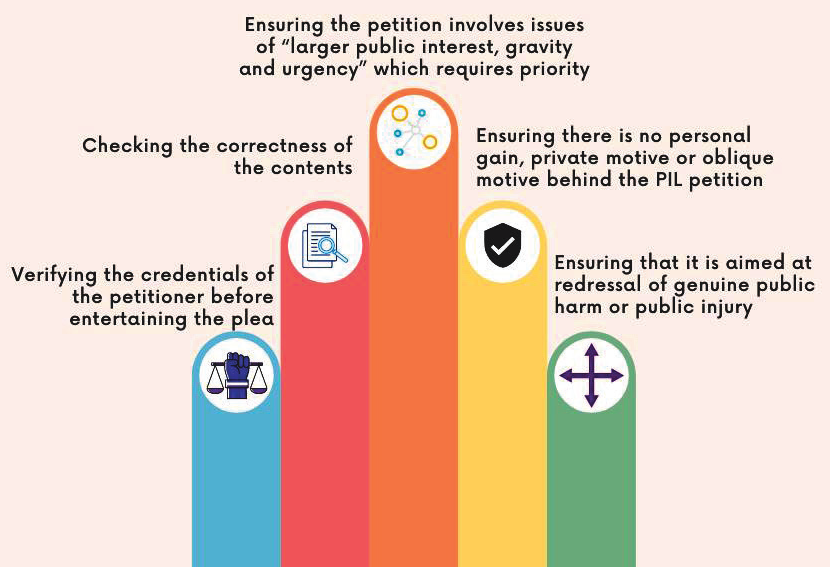
Citizenship Amendment Act, 2019
Subscribers of "Current Affairs" course can Download Daily Current Affairs in PDF/DOC
Subscribe to Never Miss an Important Update! Assured Discounts on New Products!
Must Join PMF IAS Telegram Channel & PMF IAS History Telegram Channel
- Context (IE I TH I IE): The Ministry of Home Affairs (MHA) notified the Citizenship Amendment Rules, 2024, enabling the implementation of the Citizenship Amendment Act (CAA), 2019.
- The Act amended the Citizenship Act of 1955.
- The two parliamentary committees (committee on subordinate legislation) had sought MHA’s help in framing the rules that will govern the CAA.
- If the government does not make rules and regulations, a law or parts of it will not get implemented.
- The Benami Transactions Act of 1988 is an example of a complete law remaining unimplemented in the absence of regulations.
- The government has previously taken steps to address the plight of refugees, including amendments to the Citizenship Rules in 2004 and notifications in 2014, 2015, 2016, and 2018.
Committee on Subordinate Legislation
|
Rules Issued by the Government Concerning the CAA
CAA Rules 2024
- The application process for citizenship has been made under Section 6B of the Citizenship Act, 1955.
- Applicants need to prove their country of origin, religion, date of entry into India, and knowledge of an Indian language to qualify for Indian citizenship.
- The GoI no longer requires applicants to provide language proficiency certificates for languages listed in the Eighth Schedule of the IC.
- Now, a declaration to that effect and being able to speak the language will be enough.
Proof of Country of Origin
- Relaxed requirements allow various documents, including:
- Birth or educational certificates,
- Identity documents,
- Licenses,
- Land records, or
- Any document proving previous citizenship of- Pakistan, Bangladesh, Afghanistan.
- “Any document” showing that one of the applicant’s parents, grandparents, or even great-grandparents was from one of these countries would suffice to prove their nationality.
Date of Entry into India
- Applicants can provide 20 different documents as proof of entry into India, including visas, residential permits, census slips, driving licenses, Aadhaar cards, ration cards, government or court letters, birth certificates, and more.
- A certificate issued by an elected member of a local body would be enough instead of a visa.
Mechanism for Implementation of Rules
- The MHA has assigned the task of processing citizenship applications under the CAA to the Postal Department and Census officials under the GoI.
- Central security agencies will conduct background and security checks like the Intelligence Bureau.
- Final decisions on applications will be made by empowered committees led by the Director (Census Operations) in each State.
- These committees will include officials from various departments, including the IB, Postal Dept, State or National Informatics Centre, and representatives from the State government’s Department of Home and Divisional Railway Manager.
- District-level committees, headed by the Superintendent of the Department of Post, will sift through applications, with a representative from the District Collector’s office as an invitee.
Processing of Applications
- The Empowered Committee and District Level Committee (DLC), instituted by the Centre, will process citizenship applications, bypassing state control.
- DLC will receive applications, and the Empowered Committee, headed by the Director (Census Operations), will make the final decision.
Objectives of CAA, 2019
- It seeks to make foreign illegal migrants of certain religious communities coming from Afghanistan, Bangladesh, and Pakistan eligible for Indian citizenship.
- The contentious law fast-tracks citizenship to undocumented immigrants.
Features of CAA, 2019
Illegal Immigrants
- Definition: It defines an illegal migrant as a foreigner:
- Who enters India without a valid passport or travel documents or
- Stays beyond the permitted time.
- The Act prohibits illegal migrants from acquiring Indian citizenship.
- Hindus, Sikhs, Buddhists, Jains, Parsis and Christians from Afghanistan, Bangladesh and Pakistan who entered India on or before December 31, 2014, will not be treated as illegal migrants.
The Foreigners Act, 1946 and the Passport (Entry into India) Act, 1920
- It also exempts the above category of people from the Foreigners Act of 1946 and the Passport (Entry into India) Act of 1920 so that they can receive this benefit.
- The 1920 Act mandates foreigners to carry passports, while the 1946 Act regulates the entry and departure of foreigners in India.
Before CAA, 2019
|
Citizenship by registration or naturalisation
- The Act allows a person to apply for citizenship by registration or naturalisation if the person meets certain qualifications.
- For instance, if a person resides in India for a year and if one of his parents is a former Indian citizen, he may apply for citizenship by registration.
- It creates an exception for Hindus, Sikhs, Buddhists, Jains, Parsis, and Christians from Afghanistan, Bangladesh, and Pakistan regarding this qualification.
- For these groups, the 11-year requirement (by naturalisation) will be reduced to five years.
- On acquiring citizenship:
- Such persons will be deemed to be citizens of India from the date of their entry into India and
- All legal proceedings with respect to their illegal migration or citizenship will be closed.
Exception for Certain regions in the Country
- These provisions of citizenship will not apply to the tribal areas of Assam, Meghalaya, Mizoram, and Tripura, included in the Sixth Schedule to the IC.
- These tribal areas include Karbi Anglong (in Assam), Garo Hills (in Meghalaya), Chakma District (in Mizoram), and Tripura Tribal Areas District.
- It will not apply to the “Inner Line” areas:
- Indian visits to these areas are regulated through the Inner Line Permit. Currently, this permit system applies to Arunachal Pradesh, Mizoram, Nagaland and Manipur.
Inner Line Permit (ILP)
|
Cancellation of registration of OCIs
- The Act adds one more ground for cancelling registration:
- If the OCI has violated the provisions of the Act or any other law as notified by the GoI.
- Orders for cancelling OCI should not be passed until the OCI cardholder is given an opportunity to be heard.
|
Issues related to the Amendment Act
Violation of Article 14 of IC
- Article 14 guarantees equality to all persons, including citizens and foreigners.
- It only permits laws to differentiate between groups of people if the rationale for doing so serves a reasonable purpose.
- It prohibits class legislation but permits reasonable classification.
- The Bill provides differential treatment to illegal migrants based on:
- Their country of origin,
- Their religion,
- Date of entry into India, and
- Place of residence in India.
Country of Origin
- It classifies migrants based on their country of origin to include only Afghanistan, Pakistan and Bangladesh.
- The Statement of Objects and Reasons (SoR) states that Afghanistan, Pakistan and Bangladesh have a state religion, which has resulted in religious persecution of minority groups.
- While millions of citizens of undivided India were living in Pakistan and Bangladesh, no reason has been provided to explain the inclusion of Afghanistan.
- It is not clear why migrants from these countries are differentiated from migrants from other neighbouring countries such as Sri Lanka (Buddhist state religion) and Myanmar (primacy to Buddhism).
- Sri Lanka has had a history of persecution of a linguistic minority in the country, the Tamil Eelams.
- Myanmar has had a history of persecution of a religious minority, the Rohingya Muslims.
- There have been reports of both Tamil Eelams and Rohingya Muslims seeking refuge in India.
Religious persecution of minorities in Pakistan, Afghanistan, Bangladesh
- It may be argued that other religious minorities in these countries face religious persecution and may have illegally migrated to India.
- For e.g. there have been reports of persecution of Ahmadiyya Muslims in Pakistan (who are considered non-Muslims in Pakistan) and the murder of atheists in Bangladesh.
- It is unclear why illegal migrants from only six specified religious minorities have been included in the Bill.
Date of Entry
- It is also unclear why there is a differential treatment of migrants based on their entry date into India, i.e., whether they entered India before or after December 31, 2014.
Place of residence in India
- The bill also excludes illegal migrants residing in areas covered by the Sixth Schedule, that is, notified tribal areas and also excludes the Inner Line Permit areas.
- Once an illegal migrant residing in these areas acquires citizenship, he will be subject to the same restrictions as other Indian citizens.
Wide discretion to the government to cancel OCI registration
- Giving the GoI the power to prescribe the list of laws whose violation results in cancellation of OCI registration may amount to an excessive delegation of powers by the legislature.
- The SC has held that while delegating powers to an executive authority, the legislature must prescribe a policy, standard, or rule for their guidance.
- This will set limits on the authority’s powers and not give them arbitrary discretion to decide how to frame the rules.
- The SC has held that while delegating powers to an executive authority, the legislature must prescribe a policy, standard, or rule for their guidance.
- The Bill does not provide any guidance on the nature of laws that the GoI may notify.
- The powers given to the GoI may go beyond the permissible limits of valid delegation.
Hampering Bilateral Ties
- It throws light on the religious oppression that has happened and is happening in these three countries and, thus, may worsen our bilateral ties with them.
Issues in the North-East
- It intersects with Section 6A of Citizenship Act, 1955, which determines citizenship criteria in Assam.
- It contradicts the Assam Accord of 1985, which states that illegal migrants, irrespective of religion, heading in from Bangladesh after 25th March 1971 would be deported.
- There are an estimated 20 million illegal Bangladeshi migrants in Assam, and they have inalienably altered the demography of the state.
|
Secularism and Social Cohesion
- Religion as a criterion for citizenship eligibility has raised broader concerns about its impact on secularism and social cohesion in India.
- It undermines the secular principles upon which the Indian state was founded and could exacerbate communal tensions.
Violates Federal Structure
- Prior to these Rules, an application seeking citizenship was to be made to the district collector concerned.
- Now, the application of those seeking the benefit of the CAA is to be made to the empowered committee formed by the GoI.
CAA, 2019 and National Register of Citizens (NRC)
- The CAA, followed by a country-wide compilation of the NRC, will benefit non-Muslims excluded from the proposed citizens’ register, while excluded Muslims will have to prove their citizenship.
National Register of Citizens (NRC)
National Population Register (NPR)
|
Arguments in Support of CAA
- Cross-border migration between India, Pakistan, Afghanistan, and Bangladesh has been a longstanding issue, especially for minorities.
- Before India’s partition in 1947, millions from undivided India, representing various religious communities, resided in Pakistan and Bangladesh.
- However, the constitutions of these countries, with state religions, led to persecution and fear among minorities.
- Consequently, many sought refuge in India, even with expired or incomplete travel documents.
- Failure of the Nehru-Liaquat pact: It aimed to protect minorities’ rights post-partition.
- Humanitarian grounds: The CAA provides a life of dignity and rights to religious minorities facing persecution on the grounds of their faith in the theocratic neighbouring states.
- Civilizational ethos: India has been a natural home for persecuted minorities, and the CAA is in line with the nation’s civilizational ethos.
- Reasonable classification: It differentiates based on religion but only to accommodate persecuted religious minorities, which is a reasonable restriction under Article 14.
- National interest: It will deter illegal immigration into India from these specific communities in the future. It will also act as a bulwark against infiltration from designated Muslim-majority nations.
- The present legal process of acquiring Indian citizenship by any foreigner of any category, as provided in the Citizenship Act-1955, is very much operational.
- The CAA does not amend or alter this legal position in any manner whatsoever.
- Hence, legal migrants of any religion from any country will continue to get Indian citizenship once they fulfil the eligibility conditions already provided in the law for registration or naturalisation.
Doctrine of Reasonable Classification
Essentials of Doctrine of Reasonable Classification
Article 14 and Reasonable Classification
|
GoI’s Previous Initiatives to address the plight of these refugees
- 2004: GOI amended The Citizenship Rules to give district magistrates of certain border districts in Rajasthan and Gujarat the power to grant LTVs and citizenship to such migrants.
- 2010: The MHA asked states and UTs to consider cases for extension of LTVs of specific categories of Pakistani nationals without insisting on the validity of passports.
- Hindus and Sikhs from Pakistan were eligible under this policy, apart from Pakistani women who were married to Indian nationals and were staying in India;
- Widowed or divorced Indian women who were married to Pakistanis; and “cases involving extreme compassion”.
- Grant of LTVs was also considered in the case of originally-Indian Muslim men who went to Pakistan after Partition and returned on valid Pakistani passports and settled in Kerala.
- 2014: The GoI issued a notification allowing the grant of citizenship to Hindu, Sikh, Christian, and Buddhist migrants from Pakistan. Jains and Parsis were not included in this relaxation.
- In 2015 and 2016, the government amended The Passport (Entry into India) Rules and The Foreigners Order exempting Hindus, Sikhs, Buddhists, Jains, Parsis, and Christians from Pakistan, Afghanistan, and Bangladesh from the process of law in case they entered India without a passport or visa.
- 2018: The GOI issued a notification that made these communities eligible for LTVs if they sought Indian citizenship.
- A range of benefits were extended to them — they could get a private job, start a business, admit their children to school, move freely within the state, open a bank account, buy a house, and get a driving licence, PAN, and Aadhaar.
Citizenship and the IC
- Citizenship is listed in the Union List under the IC and thus is under the exclusive jurisdiction of Parliament.
- The Constitution does not define the term ‘citizen’, but details of various categories of persons who are entitled to citizenship are given in Part 2 (Articles 5 to 11).
- These articles of the IC prescribe who will be deemed a citizen of India at the commencement of the constitution.
- Unlike other provisions of the IC, which came into being on January 26, 1950, these articles were enforced on November 26, 1949 itself, when the IC was adopted.
- It does not deal with the problem of acquisition or loss of citizenship after its commencement.
- Article 11 of the IC empowers Parliament to make any provision regarding the acquisition and termination of citizenship and all matters relating to it.
- The parliament enacted the Citizenship Act of 1955 for the acquisition and termination of Indian citizenship.

Citizenship Act, 1955
- Indian citizenship can be acquired through birth, descent, registration, naturalisation, or territorial incorporation.
- The Act does not provide for dual citizenship or dual nationality.
- The act was amended six times: in 1986, 1992, 2003, 2005, 2015, and 2019.
- Through these amendments, Parliament has narrowed down the more comprehensive and universal principles of citizenship based on the fact of birth.
- Moreover, the Foreigners Act places a heavy burden on the individual to prove that they are not a foreigner.
By Birth
- A person born in India on or after January 26, 1950, but before July 1, 1987, is a citizen of India by birth, irrespective of the nationality of his parents.
- A person born in India on or after July 1, 1987, is considered a citizen of India only if either of their parents is a citizen of India at the time of his birth.
- Further, those born in India on or after December 3, 2004, are considered citizens of India only if both of their parents are citizens of India or one of whose parents is a citizen of India and the other is not an illegal migrant at the time of their birth.
- The children of foreign diplomats posted in India and enemy aliens cannot acquire Indian citizenship by birth.
By Registration
- The GoI may, on an application, register as a citizen of India any person (not being an illegal migrant) if he belongs to any of the following categories, namely:-
- A person of Indian origin who is ordinarily resident in India for seven years before making an application for registration;
- A person of Indian origin who is ordinarily resident in any country or place outside undivided India;
- A person who is married to a citizen of India and is ordinarily resident in India for seven years before making an application for registration;
- Minor children of persons who are citizens of India;
- A person of full age and capacity whose parents are registered as citizens of India;
- A person of full age and capacity who, or either of his parents, was an earlier citizen of independent India and is ordinarily resident in India for twelve months immediately before making an application for registration;
- A person of full age and capacity who has been registered as an overseas citizen of India cardholder for five years and who has ordinarily resided in India for twelve months before making an application.
- A person shall be deemed to be of Indian origin if he, or either of his parents, was born in undivided India or in such other territory which became part of India after August 15, 1947.
- All the above categories of persons must take an oath of allegiance before they are registered as citizens of India.
By Descent
- A person born outside India on or after January 26, 1950, but before December 10, 1992, is a citizen of India by descent if there father was a citizen of India at the time of his birth.
- A person born outside India on or after December 10, 1992, is considered a citizen of India if either of his parents was a citizen of India at the time of his birth.
- If a person born outside India or after December 3, 2004,
- Has to acquire citizenship,
- Their parents have to declare that the minor does not hold a passport of another country and
- Their birth is registered at an Indian consulate within one year of birth.
By Naturalisation
- A person can acquire citizenship by naturalisation if they have ordinarily resided in India for 12 years (throughout the 12 months preceding the date of application and 11 years in the aggregate) and fulfils all qualifications in the third schedule of the Citizenship Act.
- By Territorial Incorporation:
- If any foreign territory becomes a part of India, the GOI specifies the persons who, among the people of the territory, shall be the citizens of India.




![PMF IAS Environment for UPSC 2022-23 [paperback] PMF IAS [Nov 30, 2021]…](https://pmfias.b-cdn.net/wp-content/uploads/2024/04/pmfiasenvironmentforupsc2022-23paperbackpmfiasnov302021.jpg)











